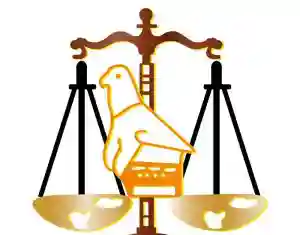In the wake of the COVID-19 pandemic, Zimbabwe responded with measures to reduce its spread and impact on all citizens.
These include the declaration of a national lockdown which commenced on 30th March 2020 and was effective for an initial 21 days before it was extended by a further 14 days to May 3rd 2020.
In order to mitigate the impact of the national lockdown, on April 29th, 2020, the President promulgated, Presidential Powers (Temporary Measures) Deferral of Rent and Mortgage Payments During National Lockdown) Regulations Statutory Instrument 96 of 2020.
The statutory instrument was gazetted in terms of Section 2 of the Presidential Powers (Temporary Measures) Act. SI 96 of 2020 defers payment of rentals in respect of residential premises and all mortgage repayments.
This, in the view of the Law Society of Zimbabwe, brings about an unjustifiable scenario where a commercial landlord who benefits from a deferment of mortgage repayments can still legitimately demand rental payments from his tenants of the same commercial premises.
In the preamble to the Statutory Instrument, it is stated that the instrument was made in the interest of health and public safety, as provided in Section 2 of the Act.
The preamble then goes on to elaborate the situation forming the basis for the Statutory Instrument in the following terms, “on account of the lockdown many people are on forced leave from employment and therefore unable to earn the income necessary to pay for among other things, rentals for residential accommodation and mortgage repayments.”
It is the Law Society of Zimbabwe’s considered view that the above basis as stated in the preamble to the regulations does not meet the criteria set out in Section 2 of the Presidential Powers (Temporary Measures) Act.
The situation as given above does not address, the interest of defence, public safety, public order, public morality, public health, the economic interest of Zimbabwe or the general public interest.
The situation describes an economic difficulty in respect of a section of the population and only in respect of a section of the national economy. In this regard, therefore, the Law Society believes the regulations are ultra vires the enabling Act.
Given the foregoing, the Society also believes that SI 96 of 2020 would, therefore, be irrational when measured against the principal law from which it draws its authority.
It also fails to take into account the effect of loss of income that would result from the implementation of the SI for individuals who solely rely on rental income.
At the same time, the individuals whose property rights are being interfered with, are still liable to pay rates, insurance premiums and other expenses for the same properties. They are also suffering the negative effects of the lockdown.
Instead of holistically solving the burden brought about by the lockdown, the SI seeks to take the burden from one citizen and thrust it upon another who may also be suffering the consequences of the lockdown.
It is the expectation of the Law Society of Zimbabwe, its membership and the general populace that government will cause public service providers like Zinwa, Local Authorities and ZESA to suspend or defer charging for their services which are basic needs if the inspiration behind S1 96 of 2020 was to cushion the public against the negative effects of the COVID19 pandemic.
The Law Society is deeply concerned that SI 96 of 2020 only interferes with contracts between parties in relation to residential properties and leaves out the contracts in respect of commercial properties for no apparent reason.
The LSZ believes the Government could have approached this issue in a more holistic manner if indeed the rationale was to reduce the burden of COVID-19 effects on the populace.
It is important that during these difficult times and at all times, that every state action must be lawful, transparent, compassionate and conform to domestic and international human rights standard.
FULL TEXT: The Law Society Of Zimbabwe Statement On Statutory Instrument 96 of 2020

